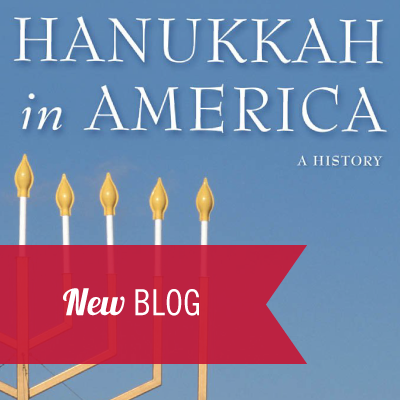
How did a minor and relatively simple Jewish holiday become one of the most recognizable, important and visible celebrations of the year? In "Hanukkah in America: a History", Dianne Ashton theorizes that the holiday’s simplicity, and its occurrence in December, allowed American Jews to magnify it into a family and community marker to stand against the cultural dominance of Christmas.
The story of Hanukkah is one of persistence and faith, resistance to oppression, and triumph through bravery and/or through a divine miracle. In 176 B.C.E., Judea came under the control of Antiochus IV, and Jewish religious practices were replaced by Hellenic rites which defiled the Temple. The Maccabean Jews led an armed revolt, regained control of Jerusalem and rededicated the Temple. Only one day’s portion of holy oil remained, but that oil burned brightly for eight days until more could be made. The name “Hanukkah” comes from a Hebrew word meaning “to dedicate,” and it is celebrated by lighting a new candle each night on the Hanukkah menorah.
Read more of Cataloging Specialist Jan Hardy's review of "Hanukkah in America: A History," on our Back in the Stacks blog.
